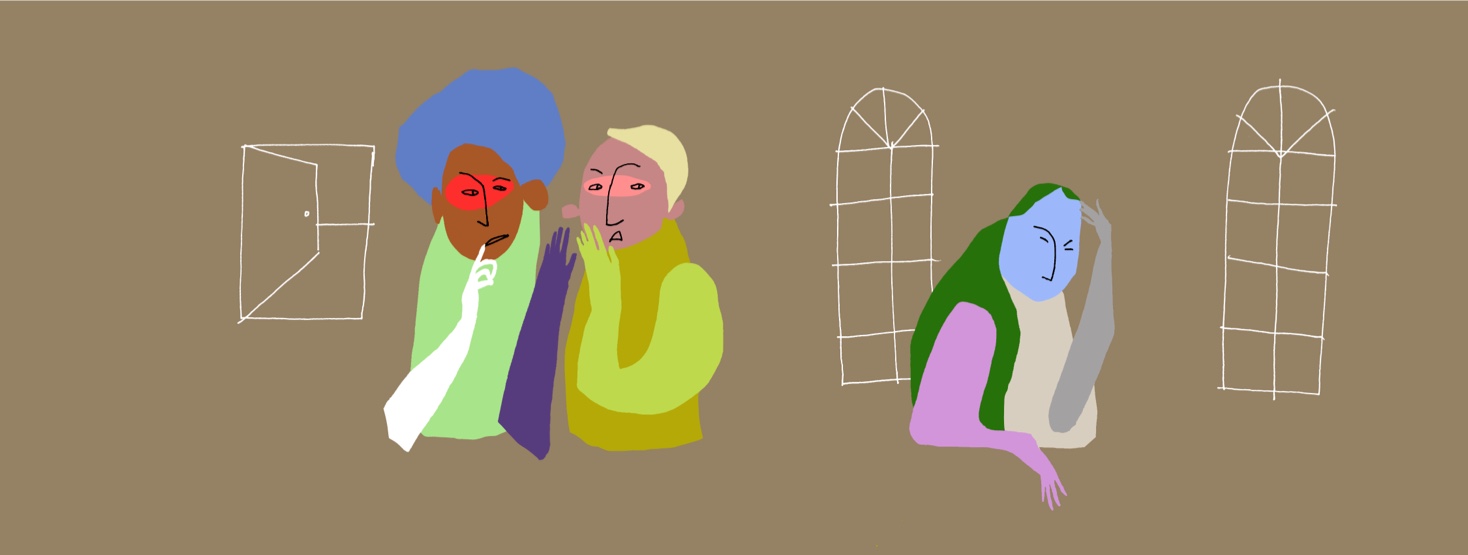Giving A Face To Lung Cancer Stigma
People living with lung cancer face many challenges, including stigma about the condition. They may encounter stigma from loved ones, strangers, and doctors. This stigma may cause many people to blame themselves for their diagnosis. Lung cancer stigma and the negative feelings it creates can have serious impacts on a person’s physical and emotional health, and even their treatment.1,2
In our 4th Annual Lung Cancer In America survey, we wanted to explore the stigma that comes with this diagnosis. This also includes the stigma surrounding lung cancer and smoking history. To learn more about the experiences of community members, we asked survey respondents to complete optional, open-ended questions about stigma.
Learning more about the way we discuss lung cancer and the experiences of those with it can help us reduce the stigma surrounding this condition.
What is lung cancer stigma?
“People ask if I smoked, then say, ‘Oh,’ like I deserved it.”
Lung cancer stigma happens when someone is defined by their illness rather than who they are as a person. It can also happen when a person is seen in a negative way because of their illness. Health condition-related stigma is when negative attitudes are expressed toward a person or something society does not accept, such as smoking.1-3
The stigma associated with lung cancer
“I never smoked. I feel that I have to say this or be judged as a smoker.”
“People are afraid I’m contagious and avoid me.”
More than half of survey respondents said they feel there is a stigma or judgment associated with lung cancer. One-quarter of respondents also feel they have been personally judged for having lung cancer. Many respondents said that when they tell someone they have lung cancer, a common follow-up question is, “Did you smoke?”
- 56 percent feel there is stigma or judgment associated with lung cancer*
- 25 percent have personally felt stigmatized or judged about lung cancer*
- 17 percent feel like some people avoid them because of lung cancer*
People experience lung cancer stigma in different ways
“Sometimes it feels as though I did it to myself, so don't complain.”
“People treat me differently. There is no sympathy for what I have been through.”
People with lung cancer can experience stigma in different ways. Stigma may come from people they know, their treatment team, themselves, or society as a whole. Those who smoke or used to smoke may blame themselves for getting lung cancer. Family and friends might express anger or blame a person for developing lung cancer.2
This stigma may lead to less compassion and support available to people with lung cancer. Many survey respondents shared that this stigma has lead them to change their language when talking about lung cancer or hide their diganosis.2
- 25 percent often feel like people assume they did something to deserve lung cancer*
- 67 percent use the term “lung cancer” when discussing their diagnosis with people outside of family and friends
- 10 percent have not shared their diagnosis with anyone but their close friends/family or doctor
Does lung cancer stigma impact quality of care?
“Pulmonologist and internist were very judgemental at time of diagnosis.”
“I feel like some people feel like I have the plague. I have even had doctors act like I have the plague.”
Research shows that stigma can be a barrier to care for people who need treatment and support for an illness. In some cases, the effects of lung cancer stigma can delay a person from getting treatment or telling loved ones about their diagnosis.1,2
- 13 percent have felt judged by a doctor treating their disease*
Stigma impacting lung cancer awareness
“I feel I need to immediately state that I had quit smoking years ago. I also let people know that lung cancer does run in my family.”
More than 60 percent of survey respondents said they feel that lung cancer does not receive enough research funding compared to other cancers.* Lung cancer stigma could be partly to blame. While smoking is associated with lung cancer, we also know that exposure to industrial chemicals, environmental agents, and genetic mutations can play a role in developing lung cancer.2
- 53 percent said there is a lack of awareness of screening for lung cancer*
Coping with lung cancer stigma
Talking to people who know what you are going through, joining a support group, and being honest about stigma can help those living with lung cancer cope with stigma.2
*Top 2 responses on a 7-point rating scale
The 4th Annual Lung Cancer In America survey was held online from January through June 2020. The survey was completed by 804 people, with 402 answering an optional open-ended question about smoking stigma.

Join the conversation